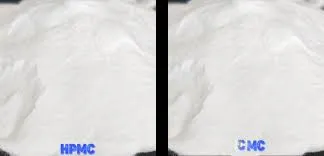
Jul . 26, 2024 16:28 Back to list
Leading Suppliers of Hydroxyethyl Cellulose for Various Industrial Applications and Quality Standards
Understanding Hydroxyethyl Cellulose Manufacturers A Comprehensive Overview
Hydroxyethyl cellulose (HEC) is a water-soluble polymer derived from cellulose, which has found widespread applications across various industries due to its unique properties. Manufacturers of hydroxyethyl cellulose play a crucial role in producing this versatile compound, catering to the demands of sectors such as pharmaceuticals, cosmetics, food, and construction. Understanding the manufacturing process, applications, and quality standards of HEC can provide insights into its significance in modern industry.
The Manufacturing Process
The production of hydroxyethyl cellulose typically involves the reaction of alkali cellulose with ethylene oxide. This process begins with the treatment of cellulose with an alkali agent, which transforms cellulose into alkali cellulose. The next step involves the addition of ethylene oxide, leading to the etherification of cellulose. Depending on the desired viscosity and other physical properties of the final product, manufacturers can manipulate various parameters during this process, such as temperature, reaction time, and the concentration of reagents.
Quality control is paramount in the manufacturing of HEC since even minor deviations can significantly impact the properties of the final product. Manufacturers adhere to strict guidelines to ensure that HEC meets the necessary specifications required for its intended applications.
Applications of Hydroxyethyl Cellulose
The versatility of hydroxyethyl cellulose has led to its widespread adoption in numerous industries
1. Pharmaceutical Industry HEC is extensively used as a thickening agent in topical formulations, gels, and ointments. It also acts as a stabilizer and binder in tablets, enhancing their texture and ensuring uniform distribution of active ingredients.
hydroxyethyl cellulose manufacturer

2. Cosmetics and Personal Care In the cosmetics industry, HEC is employed as an emulsifier and thickener in lotions, creams, and shampoos. Its ability to improve texture and enhance moisture retention makes it a favored ingredient in various personal care products.
3. Food Industry HEC serves as a food additive, providing thickening and stabilizing properties in products such as sauces, dressings, and baked goods. Its safety for consumption, coupled with its functional benefits, makes it a valuable ingredient in food processing.
4. Construction In the construction industry, hydroxyethyl cellulose acts as a thickening agent in cement-based materials, providing improved workability and water retention. It also enhances the adhesion of mortars and plaster.
Quality Standards and Regulations
The production of hydroxyethyl cellulose is subject to stringent quality standards to ensure its safety and efficacy across various applications. Manufacturers often comply with regulations imposed by agencies such as the Food and Drug Administration (FDA) for pharmaceutical and food-grade HEC, as well as the European Medicines Agency (EMA) guidelines. Additionally, standard testing methods are utilized to evaluate the viscosity, purity, and microbial load of HEC.
Manufacturers invest in research and development to innovate and enhance the properties of HEC. This continuous improvement not only elevates the quality of the product but also expands its range of applications.
Conclusion
The role of hydroxyethyl cellulose manufacturers is vital in meeting the growing demands of various sectors relying on this multifunctional polymer. Through a rigorous manufacturing process, adherence to quality standards, and a commitment to innovation, these manufacturers ensure that HEC remains a significant component across industries. As technological advancements continue, the versatility and applications of hydroxyethyl cellulose are expected to further expand, solidifying its importance in both current and future market landscapes.
-
Versatile Hpmc Uses in Different Industries
NewsJun.19,2025
-
Redispersible Powder's Role in Enhancing Durability of Construction Products
NewsJun.19,2025
-
Hydroxyethyl Cellulose Applications Driving Green Industrial Processes
NewsJun.19,2025
-
Exploring Different Redispersible Polymer Powder
NewsJun.19,2025
-
Choosing the Right Mortar Bonding Agent
NewsJun.19,2025
-
Applications and Significance of China Hpmc in Modern Industries
NewsJun.19,2025







